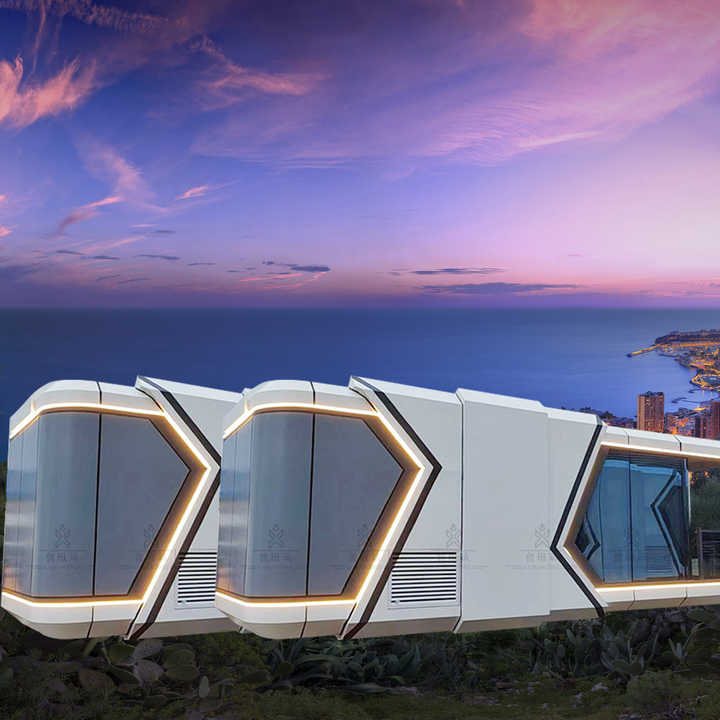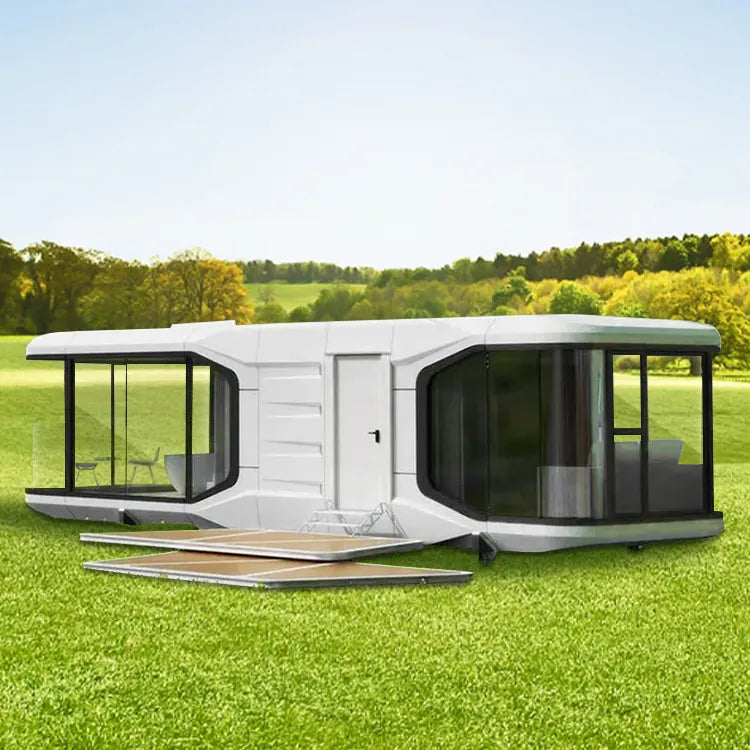Why Modular Houses Are the Future of Lasting Living
Modular homes are increasingly identified as a crucial solution for sustainable living, using a mix of efficiency, cost-effectiveness, and ecological advantages. The flexibility of modular styles allows for the integration of lasting innovations and materials tailored to individual demands.
Environmental Advantages of Modular Residences
The ecological benefits of modular homes stand for a significant step towards lasting living. These homes are built in controlled factory settings, which significantly decreases waste generated during the structure process. By enhancing materials and lessening excess, modular construction adds to an extra reliable usage of resources compared to typical building techniques.
In addition, modular homes are often created with power performance in mind. Numerous integrate advanced insulation methods, energy-efficient windows, and lasting products, adding to lower power usage. This can cause reduced greenhouse gas discharges over the life expectancy of the home, enhancing its total environmental profile.
The capacity to transport and set up modular parts on-site also decreases the carbon impact connected with building and construction logistics. Lots of modular homes are developed to be versatile and easily upgradeable, allowing homeowners to apply sustainable innovations, such as solar panels and energy-efficient heating systems, over time.
Inevitably, the environmental benefits of modular homes not only advertise sustainable living but also encourage a more accountable method to housing advancement, lining up with global initiatives to combat climate change and protect all-natural resources for future generations.
Cost-Effectiveness and Affordability
Building a home frequently stands for among the biggest monetary investments individuals make in their life time, and modular homes supply a compelling service for those looking for cost-effectiveness and cost. One of the key advantages of modular homes is their reduced construction costs contrasted to conventional site-built homes. The structured manufacturing procedure permits substantial savings on labor and materials, which translates to decrease costs for consumers.
In addition, modular homes usually have shorter building timelines. This not only reduces expenses connected to funding and insurance coverage however also reduces the dangers associated with inflation and changing market conditions. Numerous customers discover that modular homes can be customized to fit their budgets without sacrificing high quality or layout.
Furthermore, power effectiveness is typically developed into the style of modular homes, causing minimized utility expenses in time. Several makers prioritize sustainable products and methods, better enhancing the long-term economic practicality of these homes. On the whole, the mix of initial expense financial savings, quick building, and continuous power performance makes modular homes an attractive choice for those aiming to spend in sustainable living without breaking the bank.
Performance in Building
Modular homes not just provide financial advantages however also succeed in building and construction efficiency. The modular building procedure involves the simultaneous construction of components in a manufacturing facility setting while website prep work takes place simultaneously. This parallel technique dramatically minimizes the overall timeline from conception to conclusion, usually cutting construction time by approximately half contrasted to typical approaches.
Furthermore, factory-controlled environments improve quality control. By making use of accuracy production techniques, modular homes are developed to precise requirements, decreasing waste and errors. This consistency not only brings about a better product yet additionally adds to lasting practices by decreasing product waste during building.
Furthermore, making use of contemporary technology and automation in the production process enables quicker setting up and minimized labor prices. Once the modules are delivered to the website, they can be efficiently put together, additionally accelerating the timeline. This streamlined process is not only useful for contractors however likewise lessens interruptions to the surrounding environment during building.
Customization and Style Versatility
An excellent variety of personalization options identifies modular homes, permitting homeowners to customize their space to satisfy particular demands and choices. This design versatility is a characteristic of modular construction, allowing clients to choose whatever from flooring plans and area layouts to finishes and components. Unlike traditional homes, modular styles facilitate a collaborative strategy where designers and contractors work closely with property owners, making certain that each aspect straightens with private way of lives and visual needs.
In addition, modular homes can be conveniently reconfigured or broadened, fitting changing family members characteristics or progressing individual tastes. This adaptability not only enhances the home's functionality yet also contributes to long-term sustainability, as Get More Information property owners can customize their spaces instead than seek new real estate options.

Future Fads in Sustainable Real Estate
Arising trends in lasting housing are improving the landscape of domestic construction, stressing cutting-edge modern technologies and environment-friendly practices. One significant trend is the assimilation of smart home innovation, which enhances power effectiveness via automated systems that keep an eye why not check here on and enhance energy consumption. This not just lowers energy expenses however likewise adds to a lower carbon footprint.
Additionally, making use of sustainable products is ending up being significantly usual. Home builders are going with reused, in your area sourced, or swiftly renewable materials, which minimize environmental influence and assistance local economic situations. Modular homes are getting appeal for their minimized waste throughout building and their versatility to various surfaces and environments.
One more pattern is the incorporation of eco-friendly roofing systems and living walls, which improve air top quality and offer natural insulation. These functions likewise advertise biodiversity in urban locations.
Final Thought
In final thought, modular homes become a critical service for lasting living, providing significant ecological advantages via minimized waste and power efficiency. Their cost-effectiveness and affordability deal with the expanding real estate demands in urban areas, while effective construction procedures improve general efficiency. The intrinsic customization and style adaptability accommodate diverse choices and needs. As fads in lasting real estate develop, modular homes are poised to play a crucial duty in promoting environment-friendly living methods for future generations.
Structure a home frequently stands for one of the largest financial investments individuals make in their lifetime, and modular homes supply a compelling option for those looking for cost-effectiveness and price. One of their explanation the main benefits of modular homes is their reduced building and construction costs contrasted to traditional site-built homes. In general, the combination of first expense savings, quick building, and ongoing power performance makes modular homes an attractive choice for those looking to spend in sustainable living without damaging the bank.
Ultimately, the personalization and design flexibility supplied by modular homes guarantee that they are not just structures, yet individualized shelters that mirror the distinct identities of their owners while promoting sustainable living practices.
